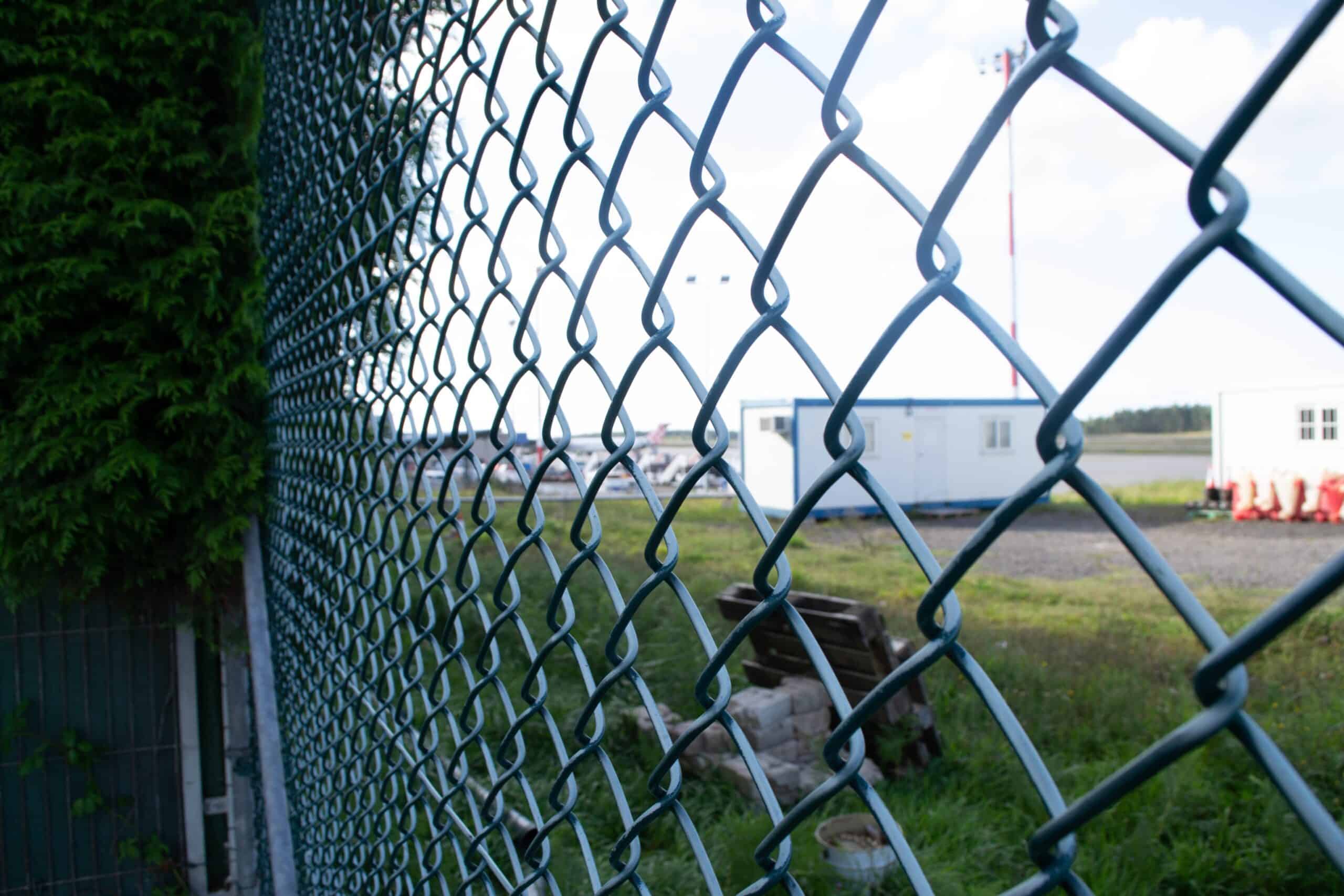
When it comes to fencing solutions, chain link fences stand out as one of the most durable and cost-effective options. Whether you need a fence for security, boundary marking, or simply to enclose your yard or business, chain link fences offer several advantages. But how long does a chain link fence last? Understanding the lifespan of a chain link fence and what factors affect its longevity will help you make an informed decision about your investment.
This article will dive into the life expectancy of chain link fences, key factors that influence their durability, and why installing a chain link fence with a professional contractor is crucial. By the end, you’ll know what to expect when it comes to installing and maintaining this versatile fencing solution.
On average, a chain link fence lasts 15 to 20 years, but many factors can extend or shorten this lifespan. High-quality fences made from galvanized steel or those coated in vinyl can last even longer—up to 30 years or more—if properly maintained. A significant benefit of chain link fences is their durability, which, when combined with proper installation, can provide property owners with decades of reliable service.
For those looking for a cost-effective and durable fencing solution, chain link fences are an excellent option, often requiring minimal maintenance while providing reliable protection for years.
Several factors can influence how long a chain link fence lasts. Being aware of these factors can help you take preventative measures and maintain your fence for an extended period.
The quality of materials used in your fence is one of the most important determinants of its lifespan. Galvanized steel is the most common material used for chain link fences because the zinc coating provides protection against rust and corrosion. However, the thickness of the galvanized layer can vary. Fences with thicker coatings typically last longer. Similarly, vinyl-coated chain link fences offer superior protection by shielding the metal beneath from environmental factors such as moisture, sun exposure, and chemical erosion.
The local climate plays a crucial role in determining how long your fence will last. Fences installed in humid or coastal areas where they are exposed to salt air tend to deteriorate more quickly than those in dry climates. The salt in the air can lead to faster corrosion if the fence isn’t properly maintained or if the protective coating wears down over time. On the other hand, dry, arid climates with less moisture can extend the lifespan of a chain link fence since rust formation is significantly reduced.
The quality of the installation also has a huge impact on the longevity of your chain link fence. Poor installation can lead to weak points, misaligned posts, or sagging fences, all of which can reduce the lifespan of the fence. Proper tensioning of the wire mesh, setting the posts deep enough in the ground, and using high-quality materials for fasteners and connectors all contribute to a fence that will stand the test of time.
Hiring a professional installer, such as Los Angeles Fence Builders, ensures that your fence is built correctly. Experts will understand the terrain, soil conditions, and best practices to prevent future issues such as sagging, leaning, or corrosion.
Regular maintenance is essential to prolonging the life of your fence. While chain link fences are generally low-maintenance, periodic inspections are necessary to check for signs of rust, corrosion, or physical damage. It’s advisable to wash the fence regularly with a garden hose and use a wire brush to remove dirt and rust spots. Additionally, applying a protective coating of rust inhibitor can extend the lifespan of the fence, especially in areas prone to moisture.
The daily use of a fence can also impact its longevity. For example, fences used to enclose animals or to protect high-traffic areas may experience more wear and tear, leading to faster deterioration. The pressure from animals, especially larger breeds, pushing against the fence can weaken the structure over time. Similarly, fences used in commercial environments may face more stress due to frequent use and physical contact.
If you're looking for a chain link fencing solution that offers both durability and affordability, installing a chain link fence is a smart choice. With proper maintenance and care, chain link fences can last for decades, providing reliable security and boundary protection for your home or business.
At Los Angeles Fence Builders, we specialize in fence and gate installations for both residential and commercial properties. Our wide range of options includes chain link, wood, wrought iron, and vinyl fences, along with driveway and security gates. Our professional team ensures that your fence is built to last, no matter the terrain or requirements of your property. Whether you need a fence for your backyard or a large commercial enclosure, Los Angeles Fence Builders delivers high-quality installations that stand the test of time.
A chain link fence is an excellent investment for both homeowners and business owners alike. Its long lifespan, especially when installed correctly and maintained, provides peace of mind and security. To explore your fencing options or get a professional installation, contact Los Angeles Fence Builders today for expert service and top-quality products.
Yes, climate plays a significant role in a chain link fence's longevity. Humid or coastal environments can accelerate rust and corrosion, especially for fences without protective coatings. Dry, arid climates, on the other hand, may allow the fence to last longer due to lower moisture exposure.
Absolutely. Professional installation ensures that your fence is securely anchored, aligned correctly, and able to withstand environmental pressures like wind and physical strain. Poor installation can lead to sagging, misalignment, and a shorter fence lifespan.
Yes, vinyl-coated chain link fences are more durable because the vinyl layer provides an extra shield against rust, moisture, and wear. This coating typically extends the fence's lifespan compared to uncoated, galvanized steel fences.